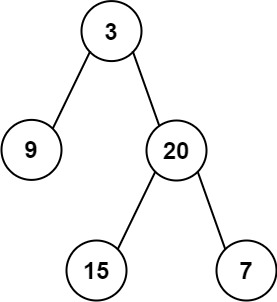English
404. Sum of Left Leaves 
Problem Statement
Given the root of a binary tree, return the sum of all left leaves.
A leaf is a node with no children. A left leaf is a leaf that is the left child of another node.
Example 1:

Input: root = [3,9,20,null,null,15,7]
Output: 24
Explanation: There are two left leaves in the binary tree, with values 9 and 15 respectively.
Example 2:
Input: root = [1]
Output: 0
Constraints:
- The number of nodes in the tree is in the range
[1, 1000]. -1000 <= Node.val <= 1000
Solution:
go
package main
// Definition for a binary tree node.
type TreeNode struct {
Val int
Left *TreeNode
Right *TreeNode
}
// Recursion
func sumOfLeftLeaves(root *TreeNode) int {
if root == nil {
return 0
}
// if root.Left is a leaf node
if root.Left != nil && root.Left.Left == nil && root.Left.Right == nil {
return root.Left.Val + sumOfLeftLeaves(root.Right)
}
return sumOfLeftLeaves(root.Left) + sumOfLeftLeaves(root.Right)
}
// Iteration
func sumOfLeftLeaves2(root *TreeNode) int {
if root == nil {
return 0
}
sum := 0
stack := []*TreeNode{root}
for len(stack) > 0 {
// pop
node := stack[len(stack)-1]
stack = stack[:len(stack)-1]
if node.Left != nil {
// if node.Left is a leaf node
if node.Left.Left == nil && node.Left.Right == nil {
sum += node.Left.Val
} else {
stack = append(stack, node.Left)
}
}
if node.Right != nil {
stack = append(stack, node.Right)
}
}
return sum
}
...
